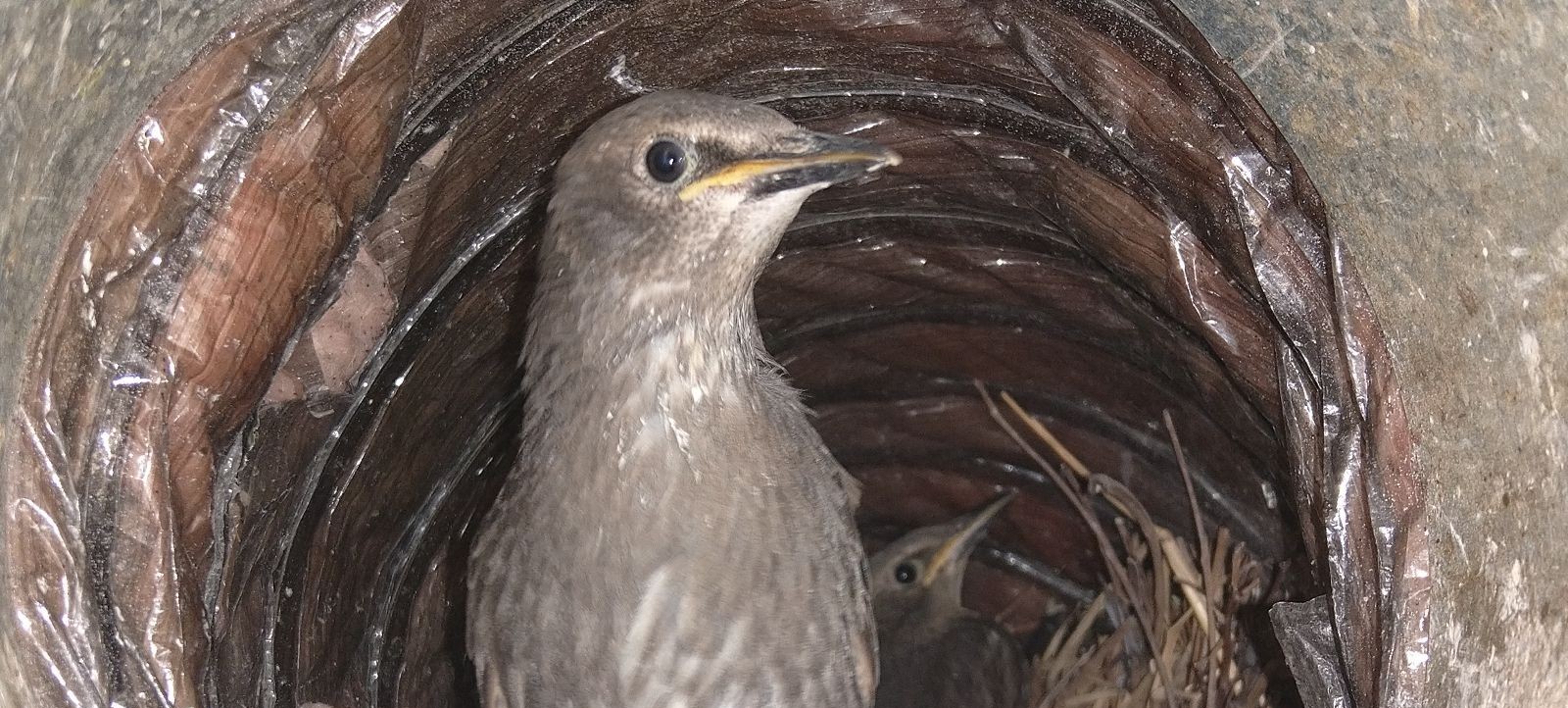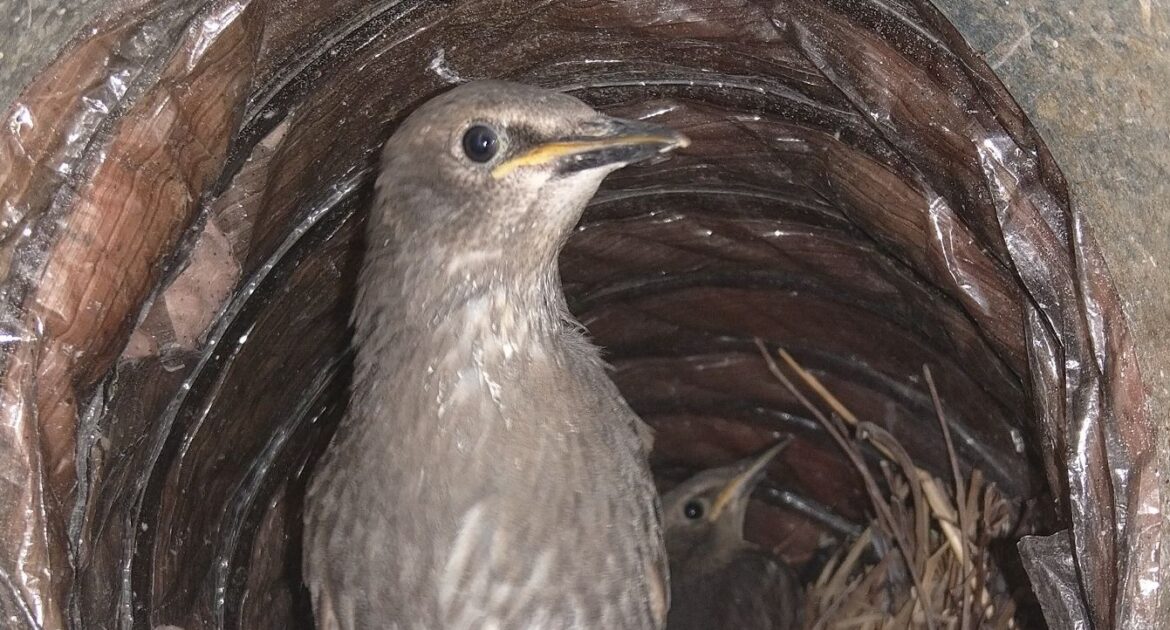Bird droppings are more than just unsightly messes; they carry serious health risks and can cause damage to your property if left untreated. The dangers of bird droppings stem from the harmful pathogens and parasites they often contain, as well as their acidic properties that can erode surfaces. If you’ve spotted accumulations of bird feces around your Baltimore home, it’s essential to know how to tackle this problem safely and effectively.
At Skedaddle, we’re here to guide you through understanding these risks and to provide expert advice on safe bird poop cleanup practices. Whether you’re dealing with mild accumulations or larger infestations, this guide will help protect your family and property from the health risks bird feces pose. Keep reading to learn about the proper steps, precautions, and solutions for managing this common issue.
Dangers of Bird Droppings
Bird droppings are more than just an aesthetic nuisance. Over time, they can pose significant risks to both your health and your property.
Health Hazards
Certain diseases and infections are closely associated with contact or exposure to bird droppings:
- Histoplasmosis: This fungal infection originates from spores found in bird droppings, especially those that have built up over time. When disturbed, these spores become airborne and can be inhaled. Symptoms range from mild respiratory issues to serious complications like fever and pneumonia.
- Cryptococcosis: Pigeon droppings are a notorious source of this fungal infection. While healthy individuals may experience minor symptoms, those with weakened immune systems risk severe lung or central nervous system infections.
- Psittacosis: Transmitted through inhaling dust from dried droppings, this bacterial infection can lead to flu-like symptoms, fever, and respiratory issues.
Beyond disease, bird droppings often carry parasites such as mites and lice. These parasites can invade homes, leading to further health concerns.
Property Damage
The acidic properties of bird droppings can cause considerable damage to surfaces over time. Siding, roofing, statues, and cars are particularly vulnerable to corrosion and staining if not cleaned promptly. Baltimore’s humid summers can exacerbate this process, increasing the need for timely cleanup.
Impact in High-Risk Areas
Homes near water bodies like Inner Harbor or buildings with open ventilation systems are at greater risk of contamination. These environments attract birds, leading to higher concentrations of droppings and a greater likelihood of associated health risks and property damage.
Safe Bird Poop Cleanup
Once you’ve identified bird droppings around your property, safety and thoroughness must guide your cleanup efforts. Improper handling can release harmful particles into the air and further spread contaminants. Here’s what we recommend.
Precautions Before Starting
- Wear Protective Gear
Use gloves, protective eyewear, and a mask to avoid direct contact with droppings or inhalation of airborne particles.
- Seal Ventilation Systems
If droppings are near vents, turn off your HVAC system temporarily to prevent the spread of contaminants throughout your home.
- Keep the Area Wet
Lightly mist the affected area with water before cleanup to prevent particles from becoming airborne. Do not use a pressure washer, which can propel harmful spores into the air.
Step-by-Step Cleanup
- Gather Supplies
Equip yourself with a disposable mask, gloves, bags, soap, disinfectant, and a clean bucket or bowl of water.
- Remove Larger Clumps
Scoop up droppings with a disposable tool, such as a small shovel. Immediately place the material in a sturdy plastic bag.
- Wash and Scrub
Use warm water and soap to scrub the affected area. Avoid using harsh chemicals that can damage surfaces. Repeat this step until the residue is completely removed.
- Disinfect Thoroughly
Apply an EPA-approved disinfectant to kill any remaining pathogens. Be sure to follow the product’s instructions for proper use.
- Dispose of Waste Properly
Place all contaminated materials, including gloves and cleaning tools, in sealed garbage bags. Contact your local Baltimore waste services for disposal recommendations.
Important Notes
- Never scrape or vacuum dried droppings, as this can aerosolize particles.
- For large accumulations in hard-to-reach areas, call in professionals to ensure safe and proper removal.
Health Risks Bird Feces Pose
Bird feces carry more than diseases; they also pose safety risks in unexpected ways.
- Structural Risks: Bird nests and accumulated droppings can block gutters and vents, increasing fire risks and restricting air circulation inside your home. Similarly, their acidic properties can weaken roofing materials, leading to leaks and other costly damage.
- Long-Term Health Impact: While many infections caused by bird droppings are mild, individuals with compromised immune systems or respiratory conditions are at a much higher risk of severe complications. Baltimore’s flora and fauna add an extra layer of concern, as bird activity often peaks during certain seasons.
- Professional Cleanup Benefits: Professional services don’t just clean; they identify long-term risks and apply preventive measures. Our team at Skedaddle ensures complete sanitation while preventing future infestations, which is critical for Baltimore homeowners.
How to Safeguard Against Future Exposure
Preventing a recurrence is just as important as an effective cleanup. Here’s how you can safeguard your home against bird droppings and contamination.
Physical Barriers
- Install Coatings or Netting
Protect vulnerable areas like ledges and roofs with bird deterrent netting or physical barriers, such as plastic spikes.
- Screen Off Entry Points
Sealing off vents, chimneys, and soffits makes it harder for birds to nest or roost.
Keep the Yard Clean
Reduce attractants by regularly removing food sources, such as uncovered trash bins or fallen fruit, from your yard. Baltimore neighborhoods often attract bird activity due to the proximity of water and urban food sources.
Routine Checks
Inspection is vital. Periodically check for nest-building activity, particularly during nesting seasons in spring and summer.
Professional Preventive Services
Companies like ours specialize in installing lasting preventive measures that are humane and tailored to urban areas like Baltimore.
When to Call for Professional Bird Removal
There are situations where professional bird removal services are not only helpful but necessary to ensure safety, hygiene, and long-lasting results. If you notice signs of infestation, such as excessive droppings, blocked vents, or aggressive bird behavior near your property, it may be time to call a professional.
- Birds can cause structural damage by nesting in vents, gutters, and chimneys or by pecking at building materials, leading to costly repairs.
- Their droppings can pose serious health risks due to bacteria, fungi, and parasites.
- Dealing with protected bird species requires proper permits to avoid legal consequences.
- Professional teams have the expertise and tools to handle bird-related issues safely, humanely, and lawfully.
Finally, homeowners and businesses may benefit from calling for preventive bird removal services. These include implementing deterrents such as netting, spikes, or other barriers to avoid future issues. If you find yourself overwhelmed by persistent bird activity or need guidance on how to protect your property, contacting a professional bird removal service is a reliable and effective solution.
Protect Your Home and Your Family Today
Bird droppings are a serious issue, but they don’t have to compromise your family’s health or the integrity of your home. Acting quickly, taking proper precautions, and knowing when to call in the experts will help keep you safe and protected.
If bird droppings are a concern on your property, contact Skedaddle today for safe and professional cleanup services. With years of expertise and an understanding of Baltimore’s unique environment, we’ll ensure your home stays clean, safe, and free from hazards.





